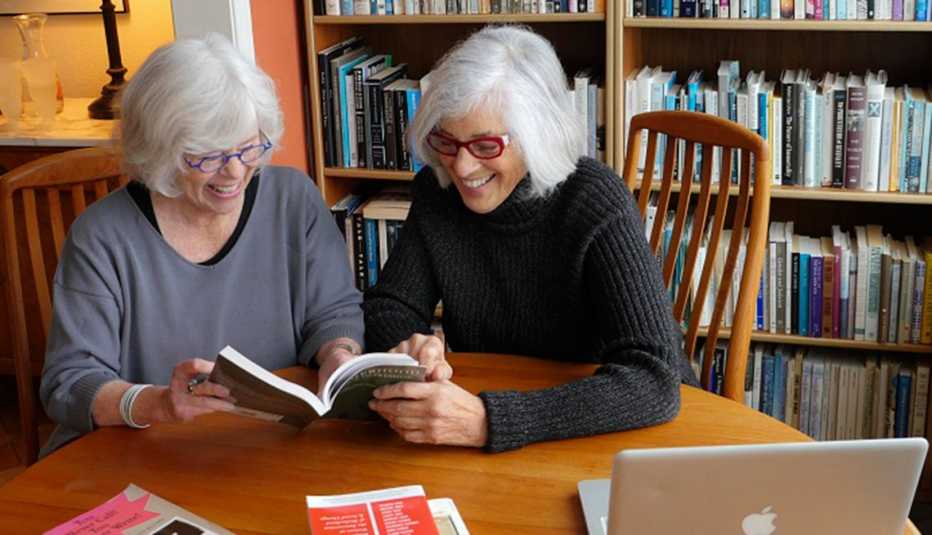AARP Hearing Center


There are countless books about mothers and daughters, but not so many (if any) about what motherhood is like when your daughters are in their 40s and 50s. Now there’s one, It Never Ends: Mothering Middle-Aged Daughters by Sandra Butler, 79, and Nan Fink Gefen, 76.
The authors, each with two daughters in their 50s, interviewed nearly 80 mothers in their 70s and 80s about their relationships with their daughters (a dynamic different than that between mothers and sons, which deserves its own book, they say).
“There’s an assumption that mothering stops when your kids are in their 40s and 50s,” says Butler from her home in the San Francisco Bay Area. Nope.
But, as the book points out, the mother-daughter relationship changes through the decades, sometimes in ways that are hard to navigate: In their later years, mothers may have more time on their hands, just as their daughters may be at their busiest — absorbed by spouses, their own children, careers.
What’s a mom’s role, then, when your daughter not only doesn’t “need” you, in the practical
sense,
but also doesn’t have as much time to spend with you as you’d like?
Butler told us a few things she learned while writing the book (and from her own parenting experience) about this sometimes uncomfortable stage in the mother-daughter relationship.
Closeness is what matters most to moms — but keep in mind that there are many different ways to be close.
“Each relationship is unique,” says Butler. “For some mothers closeness means predictability, such as Friday-night dinners. For some it’s spontaneity, being able to drop in. For some it’s deep intimate talks, and for others it’s cooking family meals together without even talking.”
She points to her “two very different daughters" as examples: "The relationship with my older daughter, who’s going to be 60, Is one of the most extraordinary relationships of my life, we’re all the way down to the bone with each other, all the way…. My other daughter, who’s 57, is an economist and feelings are not her primary language, so we talk politics. That’s our way of knowing each other and sharing our worldview and loving each other.”


































































More on entertainment
Seize the Moments
A new book offers advice on how to make the everyday extraordinary50 Years in 17 Photos
Harry Benson has documented some of the most pivotal moments in history and people's rise to fame